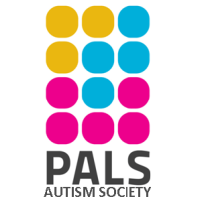
When schools and universities across the world closed midway through the semester as part of the response to COVID-19, administrators and faculty were faced with the tremendous task of transitioning their curriculum online in order continue their students’ education. The widespread adoption of software like Zoom presented numerous challenges. Many teachers were not familiar with methods of teaching online, and the difficulty in assisting and evaluating students who were taking classes from their homes was a common concern.
Yet, in the face of this sudden uncertainty, some areas of education have seen unexpected benefits with the introduction of video conferencing and distanced learning to the classroom setting. At PALS Autism School, a specialized and dedicated elementary and secondary school program based in British Columbia for children and adolescents on the autism spectrum, the use of technology has helped the school reach more students and build better connections with autistic youth and their parents.
In conversation with the Faculty of Education’s Development and Alumni Engagement team, Andrea Kasunic, PALS Head of School and Intensive Behaviour Intervention Program, described some of these findings. The online format can accommodate more students per class, due to the lack of space requirements and the unique behaviour management tools offered in video conferencing. Audio controls can be set to only allow one speaker at a time, making it easy to encourage individual participation, or they can be switched off for students who are distracting others.
Parents and guardians working from home have also been able to actively participate in the lessons and behaviour plans of their children in ways they could not before. Teachers with PALS Autism School and graduates of the UBC Faculty of Education, Rebecca Tayler, BA ’13, B.Ed ’14 and Torill Korven, Dip Ed ’19, have found that the families have a better understanding of the students’ curriculum and felt more connected to their child’s education since online learning became the norm.
Andrea notes that online learning is not a perfect alternative to in-class instructions for vulnerable students. They have had to limit activities like cooking and other life skills that require active supervision and close physical proximity, like toothbrushing. Still, even with the adoption of social-distancing measures allowing more students to regularly return on-site, participation in online learning has been encouraged by students and their guardians, who saw noticeably better familial experiences after their children had attended the classes.
At UBC, the Faculty of Education has been conducting groundbreaking researching in autism education through the Centre for Interdisciplinary Research and Collaboration in Autism (CIRCA). With the combined effort of many cross-disciplinary experts, the Centre seeks to broaden the range of training opportunities available for teachers of individuals with autism. The CIRCA is led by Director Pat Mirenda, Professor in the Dept. of Educational and Counselling Psychology and Special Education. Dr. Vicki Knight, Assistant Professor in Special Education, will assume the director role beginning in 2021.
If you wish to support autism research and education at UBC, please contact Suzanne Scott via suzanne.scott@ubc.ca.